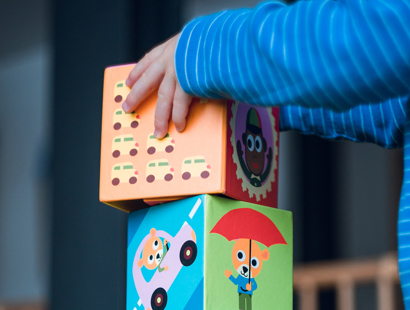
Kinship Care Week 2024: navigating kinship overseas
To mark Kinship Care Week 2024, which this year runs from 7 to 13 October, consultant Samantha Little outlines the legal nuances and challenges involved in placing a child with relatives overseas, and signposts available support for families.
Our approach to kinship care in the family and children team at Russell-Cooke has always been robust: if a child can be cared for by their wider family when their parents cannot meet their needs, then we do all we can to try and achieve that. It is a cause for concern that in many cases we rely on parents to put forward family members to care for their children if they cannot; we think it’s also up to the professionals in the case to find and pursue family members.
It is, after all, the ethos of the Children Act 1989 that children will live with their families rather than in state-funded care if possible and the care system would simply not be able to cope if family members didn’t care for many looked-after children.
We value and applaud those charities dedicated to kinship care, particularly Kinship and the Family Rights Group. They provide valuable support and advice to kinship carers, as well as lobbying Government for support and recognition of the importance of kinship care. Kinship recently published a survey of 1300 carers which provides insight into the lives of kinship carers and the pressure they are under.
The complexities involved in moving a child overseas
Kinship care can mean a child moving to live overseas with a relative. In our team, we regularly have cases involving children whose relatives live overseas. Arranging a move to live with someone out of the jurisdiction is more complex and involves consideration of how to assess the relative and how to provide for legal security in accordance with the law in the country where the child will live. There are many organisations that assist with overseas placements including CFAB and Coram IAC.
Usually the overseas country will have an equivalent to our child arrangements orders or special guardianship orders but this is not always the case. In the USA for example, the immigration position does not allow children to come to live with their relatives in most cases unless the family member adopts the child. Adoption within the family is not that common (certainly in this jurisdiction) and it’s sometimes hard to explain to the American family member that adoption is the only route, given the very significant effect of an adoption order, which is that the legal responsibility of the birth parents will be extinguished and the relationships between the family members are therefore fundamentally altered.
Adoption within the family is not that common … and it’s sometimes hard to explain to the American family member that adoption is the only route, given the very significant effect of an adoption order.”
How can we help?
The cases in which children move to the USA are complex. Over many years we have built up specialist knowledge and experience of working in these cases where children travel from the UK to the USA to be adopted and we have advised and represented many relatives living in the USA.
Families who embark on this route will find the process lengthy and stressful as it involves detailed assessment, planning and timetabling (and doing things in the right order). We work closely with the Department for Education in the UK and with agencies in the USA who are responsible for the immigration applications. We have knowledge of and ensure compliance with the relevant legal provisions which include the Hague Convention on Protection of Children and Co-Operation in Respect of Intercountry Adoption 1993, the Adoption and Children Act 2002 and the Adoptions with a Foreign Element Regulations 2005.
The team has a wealth of experience in intercountry adoptions from a number of countries – both incoming and outgoing - as well as the expertise on the particular cases when children travel to the USA. We are always happy to help with advice and guidance to local authorities or family members
Samantha Little is a consultant in the family and children team. She advises clients on all aspects of children law.
Get in touch
If you would like to speak with a member of the team you can contact our family and children solicitors by email, by telephone on +44 (0)20 3826 7520 or complete our enquiry form.





